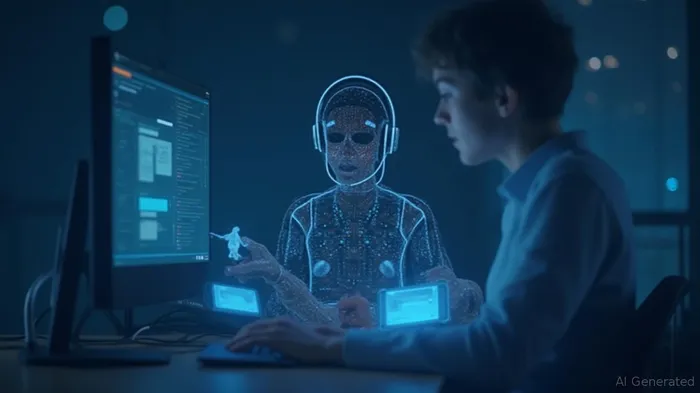OpenAI Enhances ChatGPT Voice Mode With 50% More Naturalness
OpenAI has introduced a significant upgrade to its Advanced Voice feature within ChatGPT, enhancing the naturalness and expressiveness of the AI's spoken interactions. This update is part of a broader effort to make AI conversational agents more engaging and human-like, which is particularly relevant for users in the cryptocurrency space who rely on digital interactions.
The key improvements to the ChatGPT voice mode include more nuanced pitch variations, making the AI's voice sound less robotic and more expressive. The AI now handles pauses and emphasis in speech with greater accuracy, mimicking the natural rhythmRYTM-- of human conversation. Additionally, the voice can better convey emotions such as empathy or sarcasm, adding depth and personality to the dialogue.
Beyond just sounding better, the updated voice mode also enhances practical functionalities. Language translation, a key feature for a global user base, is now more seamless. Users can simply ask ChatGPT to interpret, and it will continue translating the conversation in real-time until instructed otherwise or the language changes. This makes cross-lingual communication via the AI assistant significantly smoother.
This update is a clear indicator of the rapid progress being made in AI voice technology. The goal is to move beyond simple text-to-speech and create voices that are indistinguishable from human speech, capable of understanding and responding with appropriate tone and emotion. Such advancements have implications across various sectors, from customer service and education to accessibility tools and interactive entertainment.
While the update brings exciting improvements, OpenAI is transparent about current limitations. Users might occasionally notice minor dips in audio quality, such as unexpected variations in tone or pitch. Importantly, the update does not resolve existing issues related to AI hallucinations, which can sometimes manifest as unintended sounds, gibberish, or background music during voice interactions. These challenges highlight the ongoing work required in developing robust and error-free natural language processing and synthesis systems.
The enhanced voice mode is currently available to all paid ChatGPT users across various platforms and markets. This phased rollout allows a broad segment of the user base to experience the improvements firsthand and provide valuable feedback for future iterations. As AI continues to evolve, we can expect more frequent and impactful AI updates like this one, pushing the boundaries of what’s possible in human-computer interaction.
For users who rely on voice interactions with ChatGPT, this update promises a more pleasant and efficient experience. The increased naturalness makes longer conversations less tiring, and the improved translation feature adds significant utility for multilingual tasks. While minor glitches persist, the overall direction points towards AI assistants becoming increasingly sophisticated and integrated into our daily lives.
In summary, OpenAI has significantly upgraded ChatGPT’s voice mode, introducing more natural intonation, realistic cadenceCADE--, and improved expressiveness. The update also enhances seamless language translation for paid users. While minor audio quality issues and existing hallucination bugs remain, this step represents a key advancement in making AI voice interactions more human-like and functional.

Quickly understand the history and background of various well-known coins
Latest Articles
Stay ahead of the market.
Get curated U.S. market news, insights and key dates delivered to your inbox.



Comments
No comments yet